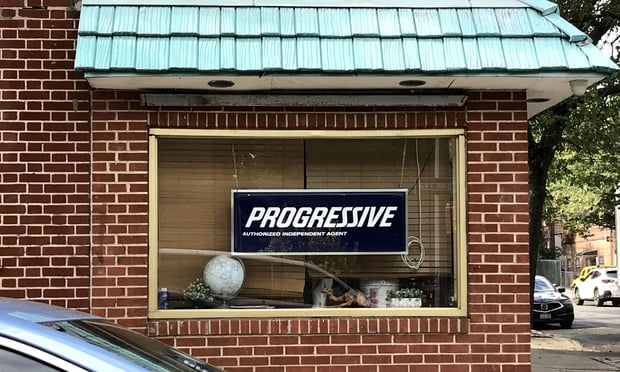The insurance industry was getting mixed signals at week's end as to whether the U.S. House of Representatives will act on a bill to reform regulation of the surplus lines and reinsurance markets before it leaves for an extended recess into November.
The comments early last week of Rep. Chris Cannon, R-Utah, threw cold water on industry hopes that the proposed Nonadmitted and Reinsurance Reform Act would be acted on in the House under an expedited procedure this coming week, setting the stage for Senate action as well if Congress, as expected, returns for a lame duck session in mid-November.
Rep. Cannon--who chairs the Judiciary Committee's Subcommittee on Commercial and Administrative Law--had said that House action, even through an expedited procedure, is unlikely before Congress recesses later this month so members can go home to campaign in what promises to be a tough re-election season.
If true, that would mean the Senate--which has not considered any legislation on this issue--is unlikely to take up the bill this year in any form, and may adjourn without even holding a hearing, lobbyists said.
However, industry officials say they remain hopeful for House action this week.
"Usually the industry itself is a circular firing squad," said Joel Wood, senior vice president of government relations at the Council of Insurance Agents and Brokers. "However, this bill unites not only the industry but also commercial policyholders and a huge majority of regulators, so we think we have a compelling case to make that this is a bill that should indeed be fast-tracked."
He added that "fortunately, we've gotten some traction on that notion with members of the Judiciary Committee on both sides of the aisle, and we're trying to work it through."
Rep. Cannon's subcommittee held a hearing last week on H.R. 5637 as part of a sequential referral of the bill from the House Financial Services Committee, which reported the measure out of committee by voice vote on July 26. "Based on the hearing, there appears to be a great deal of consensus and no substantial opposition," Rep. Cannon told National Underwriter.
Voicing support for the legislation at the hearing were Scott Sinder, a lawyer representing the Council of Insurance Agents and Brokers; Tracey Laws, general counsel of the Reinsurance Association of America; and Alex Soto, president of the Independent Insurance Agents and Brokers of America.
In his comments, Mr. Soto--who is also president of InSource, an independent agency based in Miami--said the fact that the domestic regulator will dominate under the legislation is a positive. "Our experience is that regulation closer to home is the best legislation," he said.
He added that his experience leads him to believe the bill will make the market, especially for coastal coverage, "more nimble and better able to react," but he warned that while "this will expand the marketplace, it is not a magic pill."
Voicing opposition was Tavis Plunkett, legislative director of the Consumer Federation of America, who testified that the bill is "potentially harmful to consumers."
He explained that CFA's concern is that as a result of this legislation, the personal lines component of the nonadmitted market "will grow significantly," thereby leaving consumers "potentially disadvantaged."
However, Rep. Cannon said later, "I don't see a consumer issue. Let's remove barriers to commerce [through this bill] and create a more vibrant consumer market."
Responding to Mr. Plunkett's comments, CIAB's Mr. Sinder said the personal lines surplus market in this country is estimated to be only $1 billion in the aggregate, as compared to an estimated $33 billion for commercial lines.
Mr. Sinder explained to the subcommittee that auto insurance, for example, is mandated for all drivers and strongly regulated by all the states. Surplus lines products are only available in personal lines "as added protection--not something you would be required to have," he said, adding that it is "specialized coverage, constituting only a slice of the coverage" required.
Mr. Sinder noted that the product itself is not regulated, but that brokers' access to the market is supervised through regulations governing documents, tax filings, disclosures and carrier criteria.
Want to continue reading?
Become a Free PropertyCasualty360 Digital Reader
Your access to unlimited PropertyCasualty360 content isn’t changing.
Once you are an ALM digital member, you’ll receive:
- Breaking insurance news and analysis, on-site and via our newsletters and custom alerts
- Weekly Insurance Speak podcast featuring exclusive interviews with industry leaders
- Educational webcasts, white papers, and ebooks from industry thought leaders
- Critical converage of the employee benefits and financial advisory markets on our other ALM sites, BenefitsPRO and ThinkAdvisor
Already have an account? Sign In Now
© 2024 ALM Global, LLC, All Rights Reserved. Request academic re-use from www.copyright.com. All other uses, submit a request to [email protected]. For more information visit Asset & Logo Licensing.








